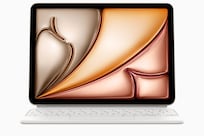Investcorp, the Bahrain-based investment bank, reports that profit in the six months to June 30 fell to about a third of the year-ago period as asset-based income dropped on global economic woes. The company, which generates most of its income from investing Gulf Arab wealth in the West, made US$63.3 million (Dh232.5m) in the period, down 71.5 per cent from $222.49m in the year-earlier period. The firm, which is listed in Bahrain and London, made net income of $151.1m in the fiscal year to June 30 compared with $302.3m in the previous fiscal year, it said yesterday. It did not provide half-year figures, which Reuters calculated based on previous financial statements.
"This has been a year of unprecedented dislocation in global markets and we have seen the impact of these conditions across our primary investment markets," Nemir Kirdar, the company's executive chairman said. "The volume of private equity and real estate transactions has declined significantly." Gross asset-based income across most of the bank's business lines - private equity and hedge funds - fell 58 per cent in the 12 months to June 30, to $199.5m from $471.8m. It did not give a breakdown for the second half of its fiscal year.
"The exceptionally high volatility and illiquidity in capital markets has impacted hedge fund returns and investment valuations," Mr Kirdar said. Earnings per share declined 45 per cent to $215 in the fiscal year, it said. Investcorp has said it would start investing in the Middle East and as of Dec 31 had more than $15bn of assets under management. The bank is offering its shareholders a dividend of $90, a 20 per cent rise over the previous financial year, it said. Investcorp made net profit of $87.7m in the six months ended Dec 31.
On Wednesday a Gulf consortium set up a $5bn steelmaking firm to meet soaring construction demand and is in talks to buy plants in Libya, India and the Gulf. Bahrain's Gulf Finance House, an Islamic investment bank, is backing the project. HadeedMENA would start operations in the fourth quarter with a projected initial capacity of eight million tonnes of steel per year for the next four years, Gulf Finance said.
"There is a huge opportunity for steel as the demand is soaring in this part of the world and we are capitalising on this," Hisham Alrayes, head of venture capital at Gulf Finance, said. HadeedMENA, which Gulf Finance is setting up with five partners, plans to build new plants and acquire existing ones to meet a long-term goal of 12 million tonnes per year of steel production capacity, Mr Alrayes said.
On Monday Gulf Finance said its second-quarter net profit hit $104m, up 40.5 per cent from the year-earlier period on higher fee income. "The revenues for the second quarter were derived mainly from fees and from the latest economic infrastructure projects - Energy City Libya - and a strong contribution from the bank's venture capital business," Gulf Finance said in a statement. The bank made $74m in the second quarter of last year.
*With Reuters





